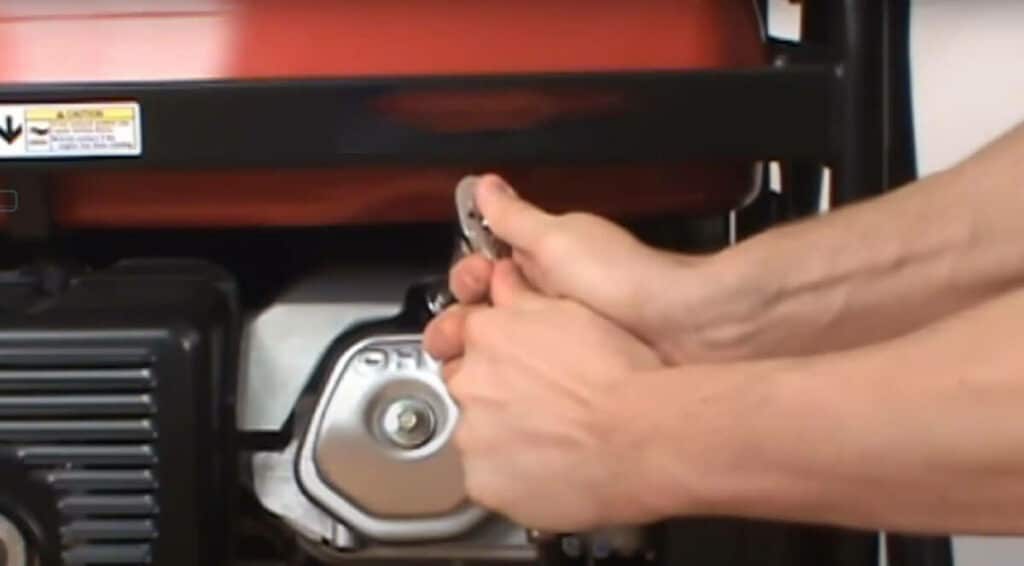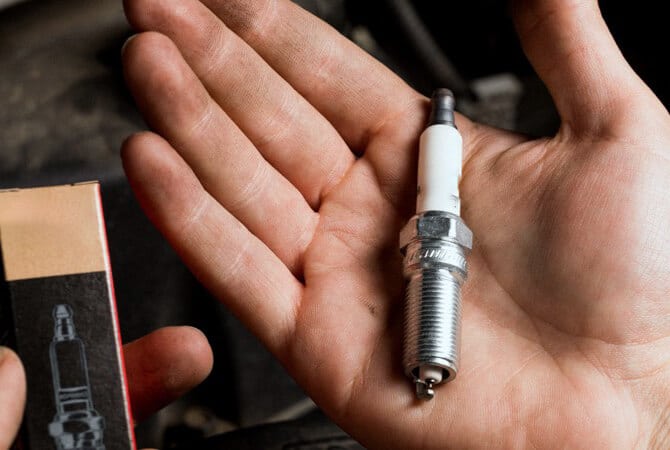How To Change Generator Spark Plug?
- BY BISON
Table of Contents
Is this the time of year when bad spark must be replaced as part of generator tuning?
Sometimes, failing generator spark plugs can be so frustrating. But the actual replacement process is very simple.
So, to save yourself the stress, in this article, China BISON will show you how to change a generator spark plug. Thanks to our instructions and user manual, amateurs will have no problems.
In fact, our first piece of advice is to read the guide before starting the update process, as it often contains information on the correct spark plug type.
The Significance of Replacing Generator Spark Plugs
A generator spark plug is usually located in the engine cylinder head and is designed to create a spark in a small gap that ignites the air and fuel mixture, creating a controlled explosion. This explosion creates pressure and drives a piston, generating power, which is transmitted to the crankshaft and to the output shaft of a generator.
Maintaining the efficiency and durability of your generator is highly dependent on replacing generator spark plugs. Inefficient fuel usage, diminished power production, and potential engine harm can result from a worn or damaged spark plug.

Items you will need to change the generator spark plug
- Spark plug with the proper spacing
- The brush and towel must be clean.
- 3/8″ and 5/8″ spark plug socket
- Gloves for protection
- Phillips and flathead screwdrivers
- Set for gapping spark plugs
- Ratchet
How to change generator spark plug step by step?
- Discover the spark plug: The first (and frequently most difficult, especially if this is your first time) step is to find the spark plug. It is frequently buried beneath a detachable case and covered by a spark plug boot. Although the alternator spark plug location varies, it is typically in the engine’s cylinder head. This can be done by removing the air filter or protective cover. In some cases, the spark plug may be in a hard-to-reach area, requiring the removal of other components or the engine disassembly. On newer inverter generators, it is located behind the side panels. In these cases, it is advisable to consult the generator’s owner’s manual for specific instructions.
- Disconnect spark plug wire: Once you’ve discovered the location of your old plug, you must unplug the wire that is connected to it. You must have access to the boot of a spark plug wire to do so safely. Twist the boot in either way and pull off at the same time once you have a firm grip on it.
- Clean the area completely: Check that the old plug and everything surrounding it is clean when you disconnect the wire. Take your time with this because missing the cleaning process might do significant damage to your generator.

- Remove old spark plug: Use a spark plug socket wrench to safely remove the spark plugs from the engine.
- Watch out for the new spark plug: Before installing your new spark plug into your generator, make sure you have the correct model, size, and gap.
- Installation of a new plug: Once you’ve determined that your plug has the proper gap, you can install it. Insert the replacement spark plug by hand into the spark plug housing and tighten it with the socket wrench, taking care not to over-tighten.
- Replace the plug wire: After you’ve safely installed your new spark plug, reconnect the wire. Again, take the spark plug wire boot and slip it over the head of the plug. Then, press it until it is completely inserted.
BISON safety tip: Before maintaining or repairing any power equipment, disconnect the spark plug and battery wires. Wear proper safety eyeglasses and gloves to protect you from hazardous materials and debris.
Signs that the spark plugs need replacing
Recognizing the indications that your generator spark plug requires replacement is crucial. Here are some typical signs:
Challenges when starting the generator
Decreased power output
Higher fuel consumption
Engine misfires or stalls
Observable damage or wear on the spark plug
If any of these indications are present, it’s time to change your generator’s spark plug.

Conclusion
Changing your generator’s spark plug is a simple yet crucial maintenance task that ensures the optimal performance and longevity of your generator. By following the step-by-step guide provided in this article and paying attention to the additional information on the importance, signs, replacement frequency, and proper gapping of spark plugs, you can effectively maintain your generator and keep it running efficiently for years to come.
people also ask about How To Change Generator Spark Plug?
When should you replace your generator's spark plugs?
Spark plug replacement depends on various factors, such as environment, usage, and the quality of the spark plugs.
However, as a general rule, replacing the spark plugs every 100 to 150 hours of operation or annually, whichever comes first, is recommended.
It’s also a good idea to periodically inspect the spark plugs for signs of wear, such as contaminated or damaged electrodes, and replace them if necessary.
Regular maintenance helps keep your generator running efficiently and prolongs its life. It is also essential to use high-quality spark plugs designed for your generator’s specific make and model to ensure optimum performance.
Is it necessary to use a special tool to change a spark plug?
To replace your alternator's spark plugs, all you need are a few tools. The most important tools are a socket wrench with an extension and a spark plug socket.
When it comes to spark plugs, how tight should they be?
Tighten the spark plug finger-tight until the gasket touches the cylinder head, then use a spark plug wrench to tighten another ½ – ⅔ turns.
contact us
related product categories
Get in touch to speak with our experts!



